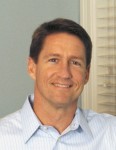
John Bradberry of Charlotte, North Carolina, has a background in psychology and works with both early stage and mature companies on organizational development. His book, 6 Secrets to Startup Success, helps founders and investors evaluate and improve their readiness to launch, and grow, a company.
John Bradberry on falling in love with your business; on why founders need to assess their own physical and emotional health; and why passion is not always a great thing when you’re launching a company.
Q: You speak and write a lot about passion.
A: It’s impossible to understand a business and what makes it successful without understanding that it is a personal and emotional process for the founder. It can be both wrenching and glorious.
Q: How do family and personal relationships factor in to your assessments of an entrepreneur’s “readiness”?
A: I come at the topics you write about from another direction. What’s good for the business aligns with what’s good for the personal side of the entrepreneur’s life. You can’t extricate the two and deal with them separately. When we assess the strengths of a business, one of the “assets” we assess is the founder—how much gas does he have in the tank? Is he physically and emotionally healthy? Enough to stay in the game for the long haul? A lot of businesses blow up because the entrepreneur’s personal life is not working.
Q: How do you go about making this kind of personal assessment?
A: We ask founders to think it through. If they are pre-launch, we tell them to take a good hard look not only at their path to profitability, but also at what sacrifices the business will require of their families. The typical founder drastically underestimates Lire la suite



